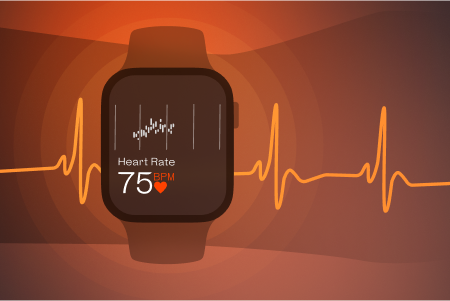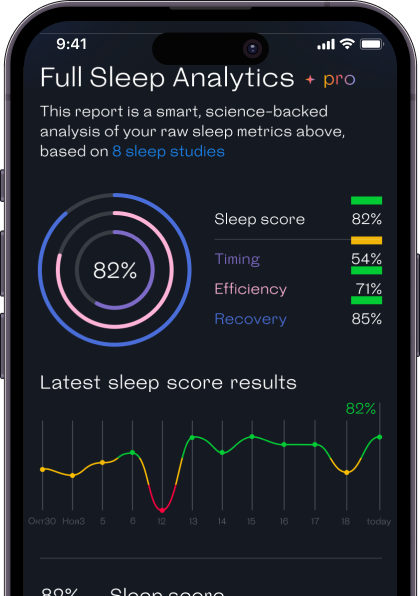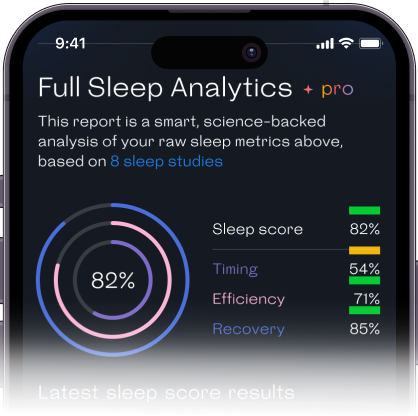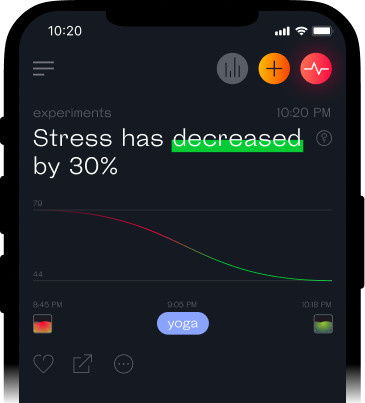


Welltory — All-in-One Wellness App.





Working the night shift can be a daunting task that can take a toll on your physical, mental, and emotional health. It is challenging to stay alert and productive during the night while your body is programmed to sleep. Long-term night shift work can also increase the risk of chronic diseases such as heart disease, diabetes, and obesity. However, with a few changes to your lifestyle and habits, you can adapt to working at night and thrive in your job.
At Welltory, we believe in empowering individuals to take control of their health and wellbeing. Here are some tips to help you survive the night shift and maintain a healthy work-life balance:
Bright light therapy involves exposing yourself to bright, artificial light during your shift to help regulate your circadian rhythm and improve alertness (National Sleep Foundation, n.d.). This can be especially helpful if you work in a dimly lit environment or if you have difficulty staying awake and alert during your shift. Studies have shown that bright light therapy can be effective for improving sleep quality and reducing fatigue in night shift workers.
To incorporate bright light therapy into your night shift routine, consider using a light box or special light bulbs that emit bright light. Aim to use the light for at least 30 minutes per day, and avoid using it during the last hour of your shift to avoid disrupting your sleep
Staying hydrated is also important for mitigating the negative effects of working night shifts. Dehydration can contribute to fatigue, headaches, and other health problems, and is especially common among night shift workers who may not have access to fluids as frequently as day shift workers.
One of the easiest ways to stay hydrated during a night shift is to drink plenty of water throughout the shift. Keeping a water bottle with you at all times and taking regular sips can help ensure that you are getting enough fluids. The amount of water you need may vary depending on factors such as your body weight and activity level, but a general guideline is to drink at least eight glasses (64 ounces) of water per day.
Taking naps can be an effective strategy for combating fatigue and improving cognitive function while working night shifts. Studies have shown that even short naps can have a positive impact on performance and alertness.
When planning to take a nap during a night shift, it’s important to keep a few things in mind. First, try to keep your nap short, ideally around 20-30 minutes. Longer naps can disrupt your sleep patterns and leave you feeling groggy and disoriented.
Second, create a comfortable sleep environment for taking effective naps. Consider using earplugs, an eye mask, or a white noise machine to block out distractions and create a relaxing atmosphere. Be sure to find a comfortable place to lie down, such as a couch or reclining chair, and use a blanket or pillow if necessary.
It’s important to experiment with different nap lengths and strategies to find what works best for you, and to communicate with your employer about your needs as a night shift worker. With Welltory you can try and gauge your levels of stress and energy before and after a nap. This way, you’ll have scientific proof of whether you need a shorter or longer naps and whether they work for you at all.
Get Welltory
for night shifts
Get Welltory
for night shifts



Managing stress levels is crucial for maintaining good health and well-being for night shift workers. Chronic stress can lead to poor sleep quality, increased risk of chronic illness, and mood disorders such as anxiety and depression. Therefore, it is essential to take steps to reduce stress levels and promote relaxation.
One approach to manage stress levels is to practice relaxation techniques, such as deep breathing, meditation, or yoga. These techniques can help calm the mind and reduce stress levels, leading to improved sleep quality and overall well-being.
Another strategy is to engage in physical activity during off hours. Exercise has been shown to have a positive impact on stress levels and can help to improve sleep quality. Even light exercise, such as taking a walk or stretching, can help to reduce stress levels and promote relaxation. Studies have shown that regular exercise can help to reduce stress levels and improve sleep quality.

You can track your stress levels with Welltory
Avoiding consecutive night shifts can be an important strategy for reducing the negative effects of working night shifts on your health and well-being. Studies have shown that working consecutive night shifts can disrupt your sleep patterns, increase your risk of developing sleep disorders, and contribute to fatigue and burnout (European Agency for Safety and Health at Work, 2015).
One reason why consecutive night shifts can be problematic is that they disrupt your circadian rhythm, which is your body’s natural internal clock. Your circadian rhythm regulates important biological processes, such as sleep and hormone production, and is influenced by factors such as light exposure and meal timing. Working consecutive night shifts can disrupt your circadian rhythm by exposing you to light during the day when you should be sleeping, and by requiring you to stay awake and alert during a time when your body naturally wants to rest.
To mitigate the negative effects of consecutive night shifts, it’s important to take breaks in between shifts to allow your body to recover. This might mean scheduling a day off between night shifts, or alternating between day and night shifts to give your body time to adjust.
While we understand that it’s not always possible, try to communicate with your employer about your health concerns as a night shift worker so that you have adequate time off between shifts.
Working night shifts is a tremendous challenge and we salute you for trying to take care of your health when doing so. From taking naps and to managing your stress levels and staying hydrated, these tips can help you maintain your physical and mental health while working during the night. It’s important to prioritize your health and make adjustments to your lifestyle to accommodate the demands of night shift work.
Welltory Team, 03 Mar. 2023
 App Store
App Store
 Google Play
Google Play
 Huawei AppGallery
Huawei AppGallery
 Galaxy Store
Galaxy Store

